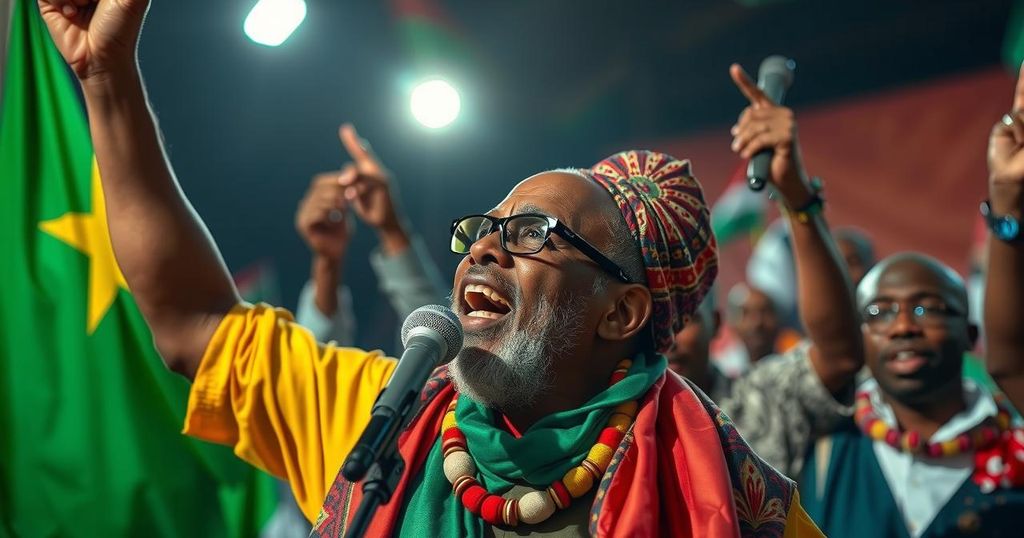Abdirahman Mohamed Abdullahi of the Waddani Party won Somaliland’s presidential election, receiving over 50% of the vote. His campaign prioritized democratic reforms and economic growth. President Muse Bihi Abdi of the Kulmiye Party came second, securing around 30%. The election faced delays due to funding issues. Tensions with Somalia arise from Somaliland’s agreement with Ethiopia for ocean access, prompting calls for economic benefits from opposition leaders. Somali officials express hopes for improved inter-regional relations following the election.
Abdirahman Mohamed Abdullahi, the leader of Somaliland’s main opposition party, the Waddani Party, has emerged victorious in the recent presidential election, as declared by the electoral commission on Tuesday. Abdullahi garnered over 50% of the votes, succeeding following a campaign that emphasized democratic reforms and social stability. He previously served as the speaker of Somaliland’s parliament in 2005. The ruling party’s candidate, President Muse Bihi Abdi, seeking a second term, secured approximately 30% of the vote. During his administration, he focused on obtaining international recognition for Somaliland, which has operated independently since declaring its separation from Somalia in 1991. The electoral process had faced delays due to funding shortages and other logistical issues. Furthermore, Somaliland has developed its governance, currency, and security apparatus, contrasting sharply with Somalia’s ongoing instability. Tensions have arisen recently due to Somaliland’s agreement with Ethiopia, which grants it access to the Indian Ocean in exchange for regional recognition, a deal that has prompted criticism from opposition leaders regarding its hurried negotiation and the perceived lack of economic benefits to Somaliland. “Waddani Party have raised concerns about the MoU’s lack of tangible benefits for Somaliland, particularly in trade and regional support,” stated Mohamed Husein Gaas from the Raad Peace Research Institute. Responses to the election results from Somali leaders include expressions of hope for improved relations with Somaliland. Former Prime Minister Hassan Ali Khaire articulated his aspirations for the new president to lead the region towards peace and cohesion among the Somali people. Additionally, Ismail Omar Guelleh, the president of Djibouti, extended his congratulations to Abdullahi.
The recent election in Somaliland signifies a pivotal moment in the region’s political landscape, highlighting its continuous push for democratic governance amidst its long-standing quest for international recognition. Somaliland, which declared independence from Somalia over three decades ago, has established a stable political environment, in contrast to the ongoing turmoil in Somalia. The region’s focus on democratic reforms and economic recovery, particularly among its youth, is crucial in addressing the challenges it faces, especially in relation to its agreement with Ethiopia regarding access to maritime resources. The election results could further influence regional dynamics and relations with Somalia.
The election of Abdirahman Mohamed Abdullahi as president of Somaliland marks a significant shift towards democratic engagement in the region. The opposition’s commitment to social cohesion and economic revitalization presents new opportunities for growth and stability. Moreover, the reactions from Somali leaders indicate a desire for enhanced inter-regional relations, which could potentially lead to improved cooperation amid existing tensions over recent agreements with Ethiopia. The focus will now be on how the new leadership addresses these challenges and moves towards fostering unity within the Somali context.
Original Source: www.seattletimes.com






